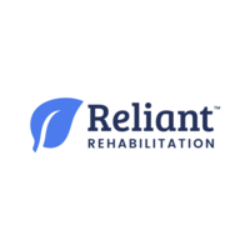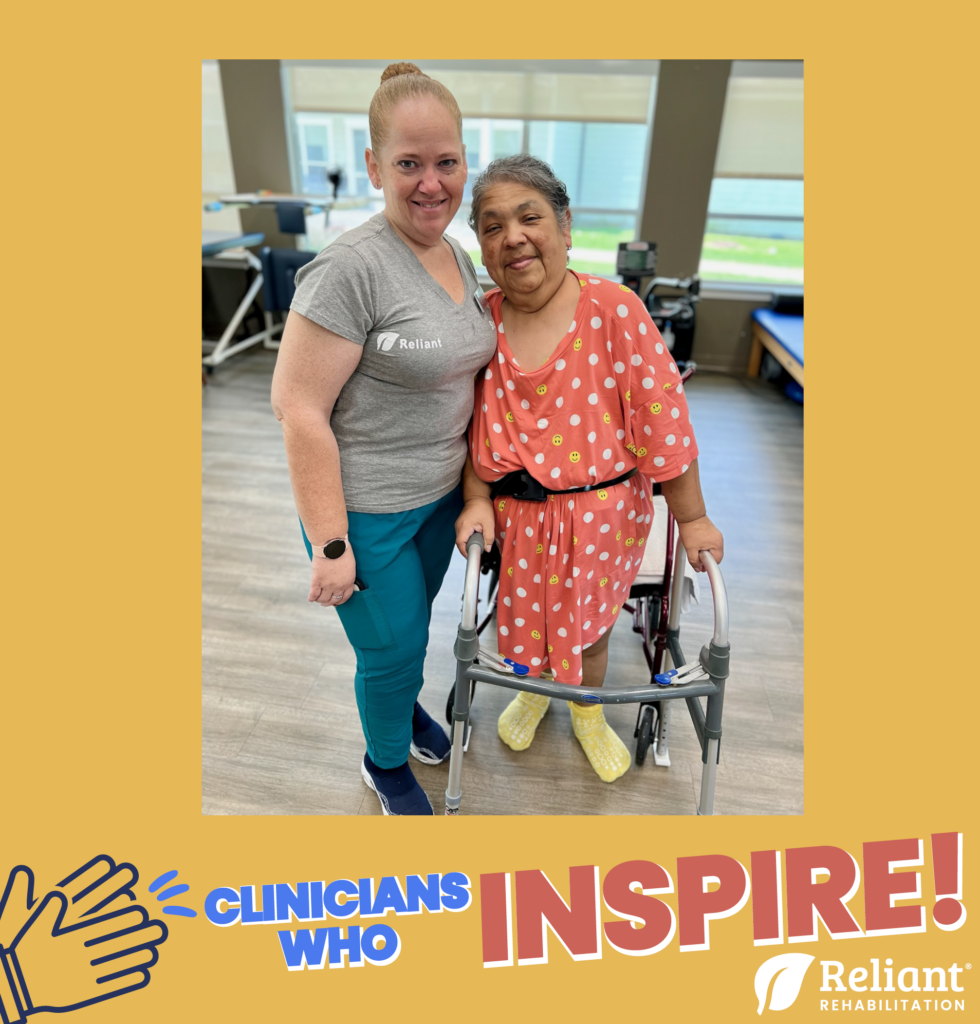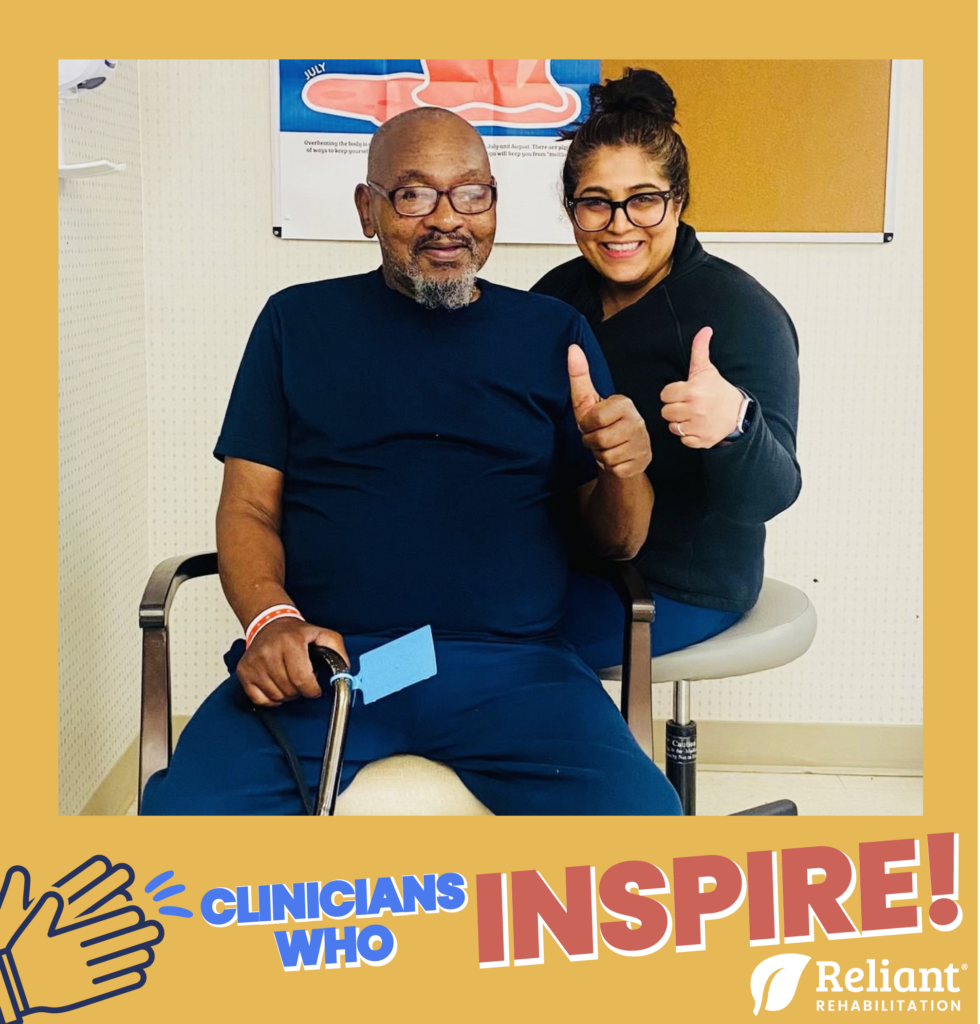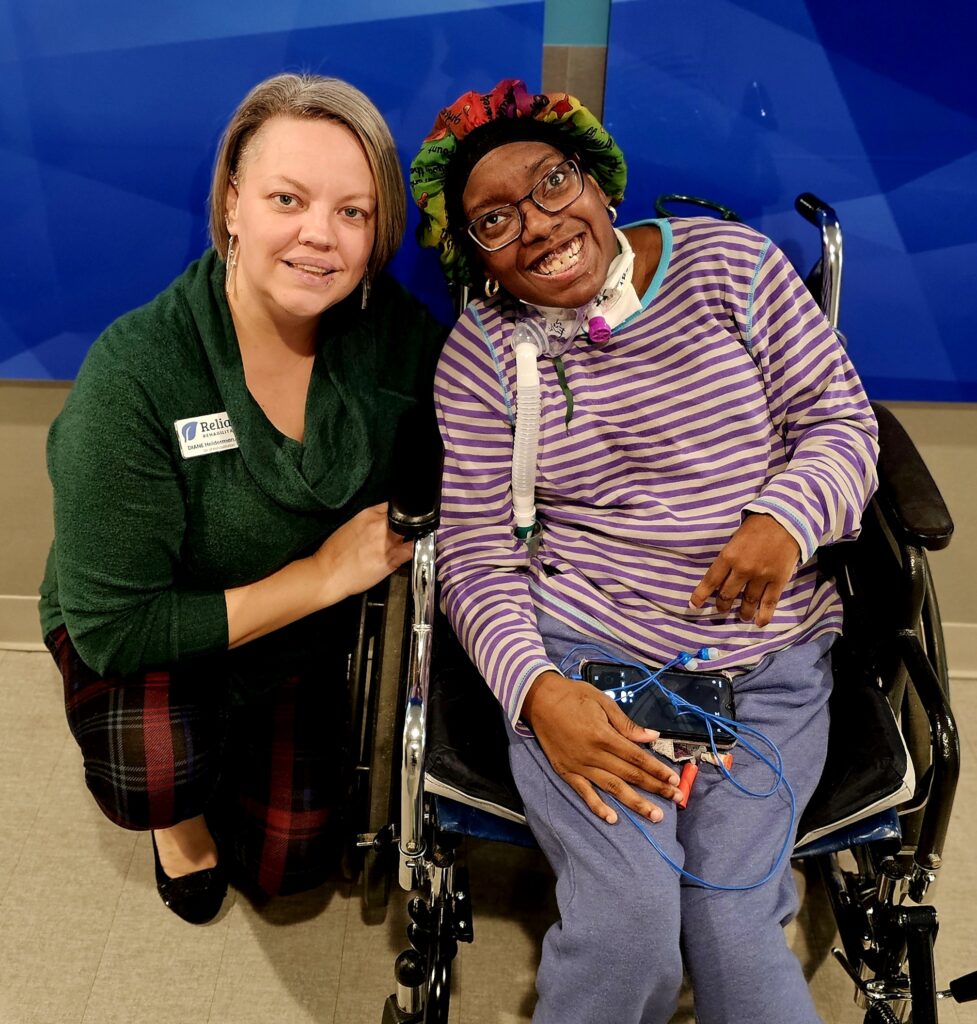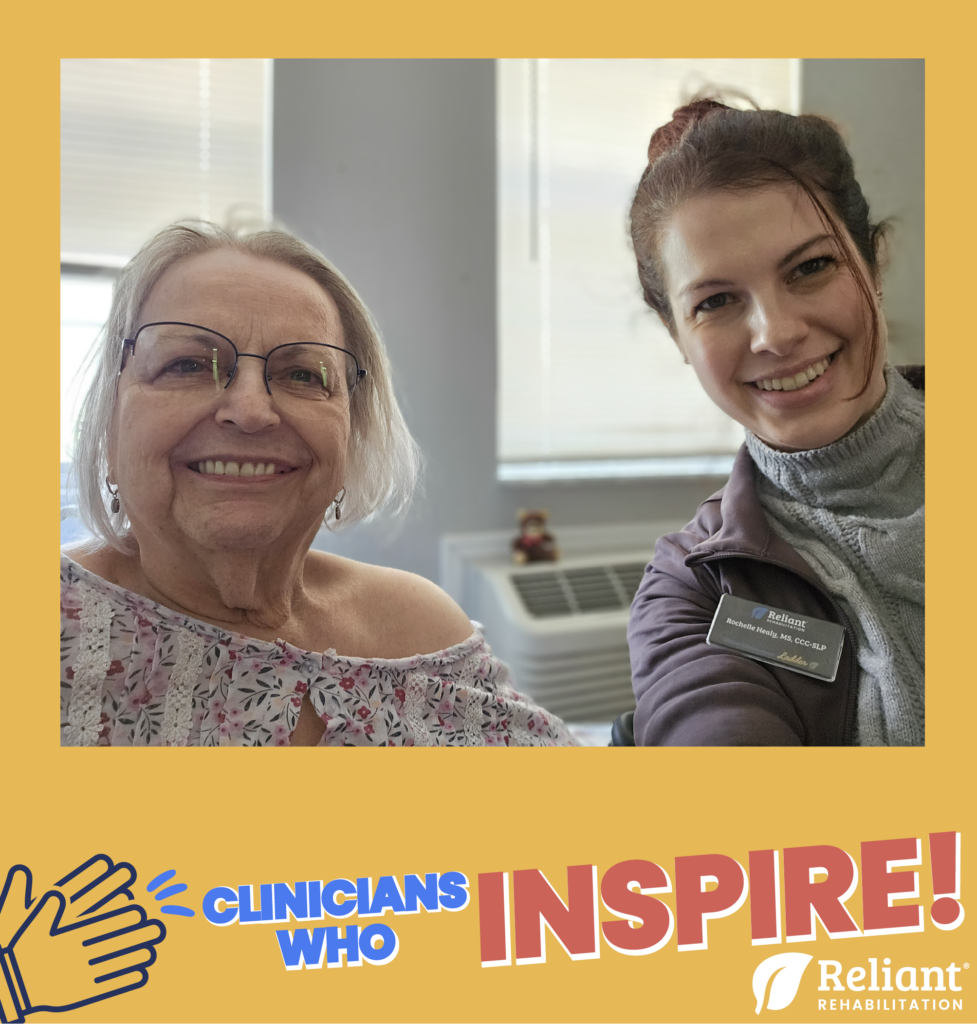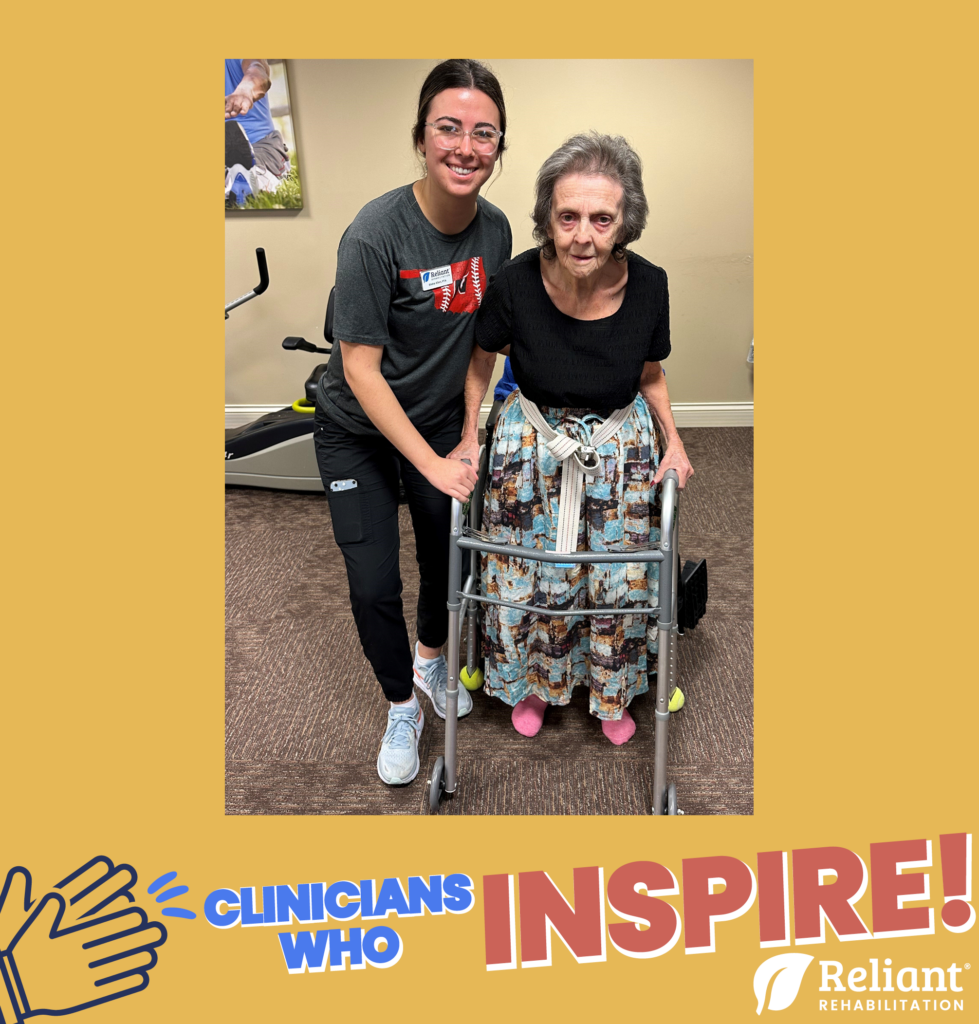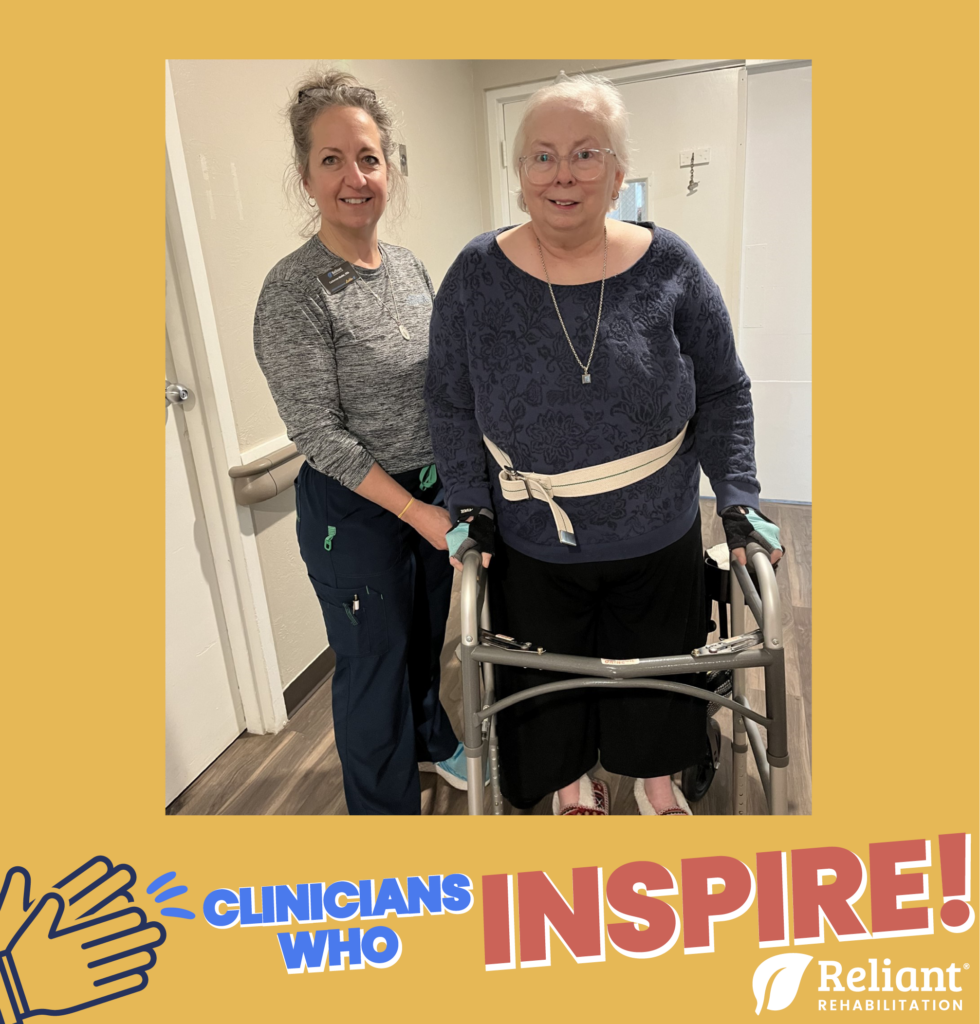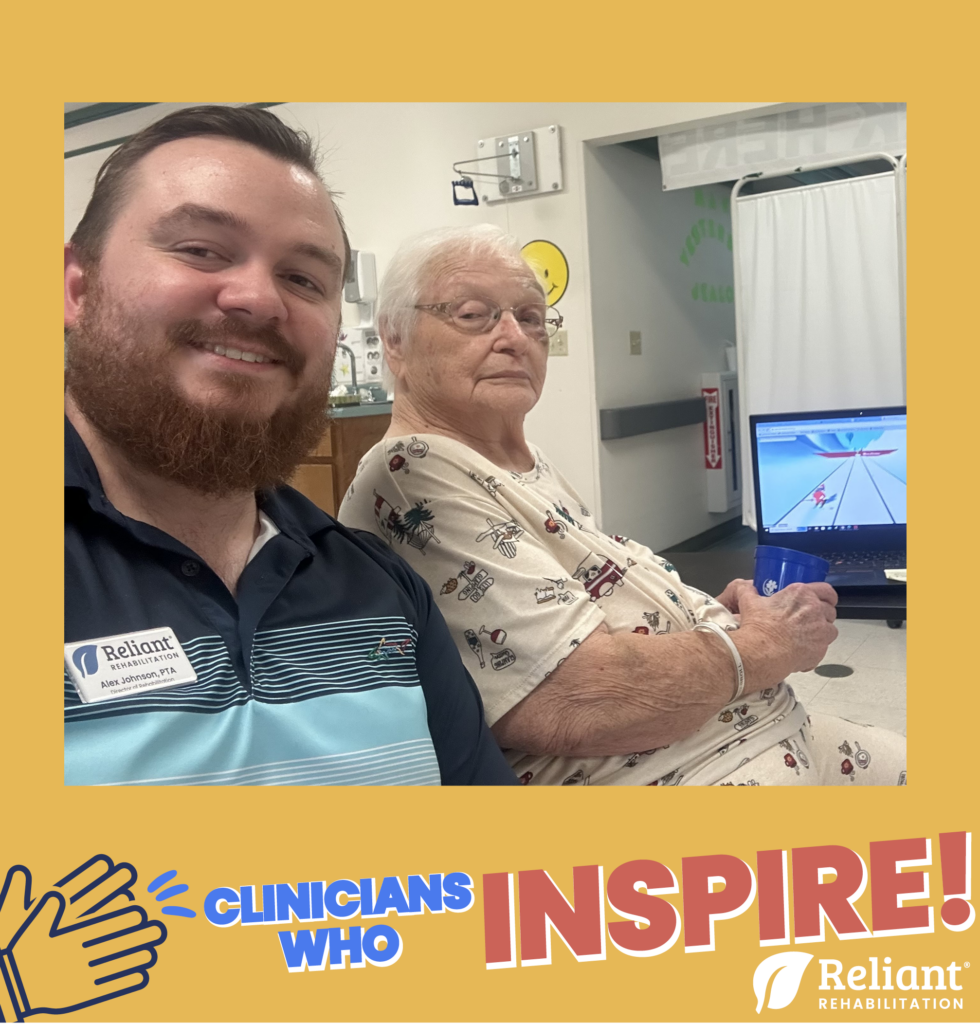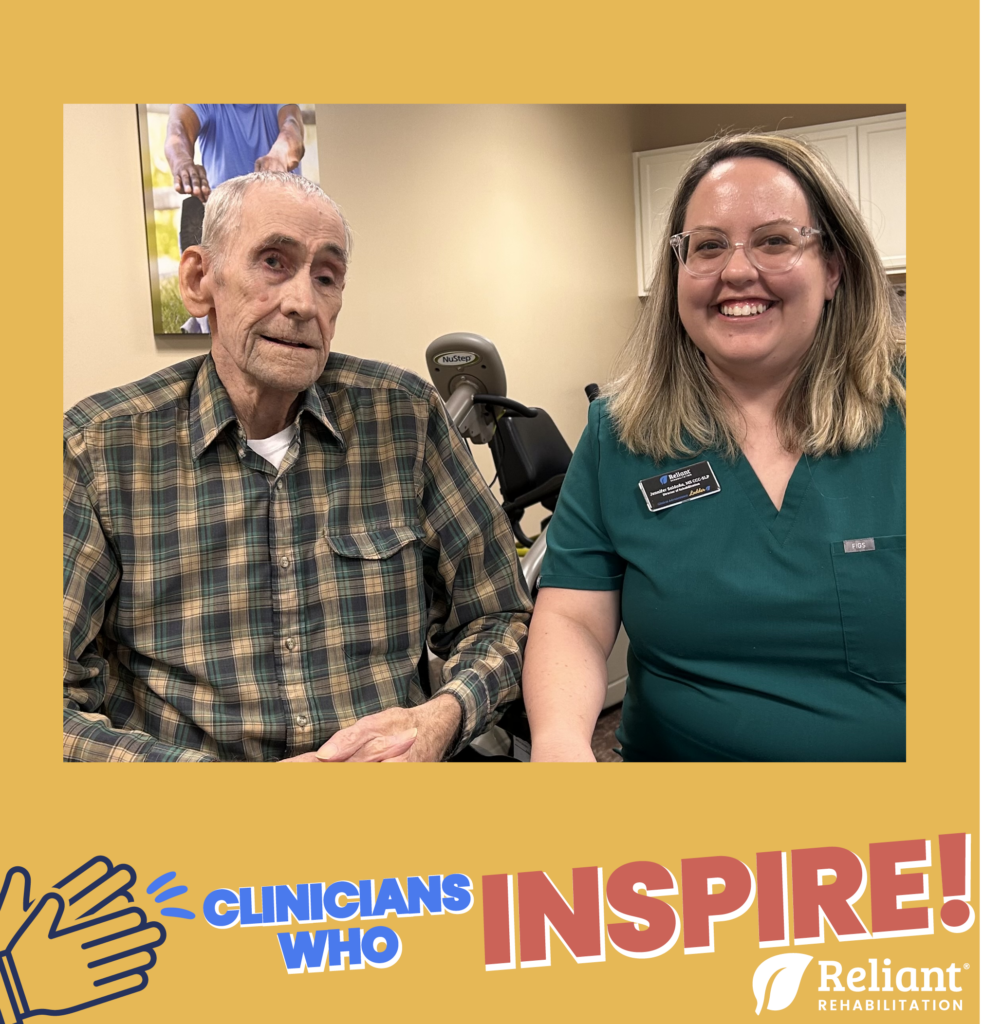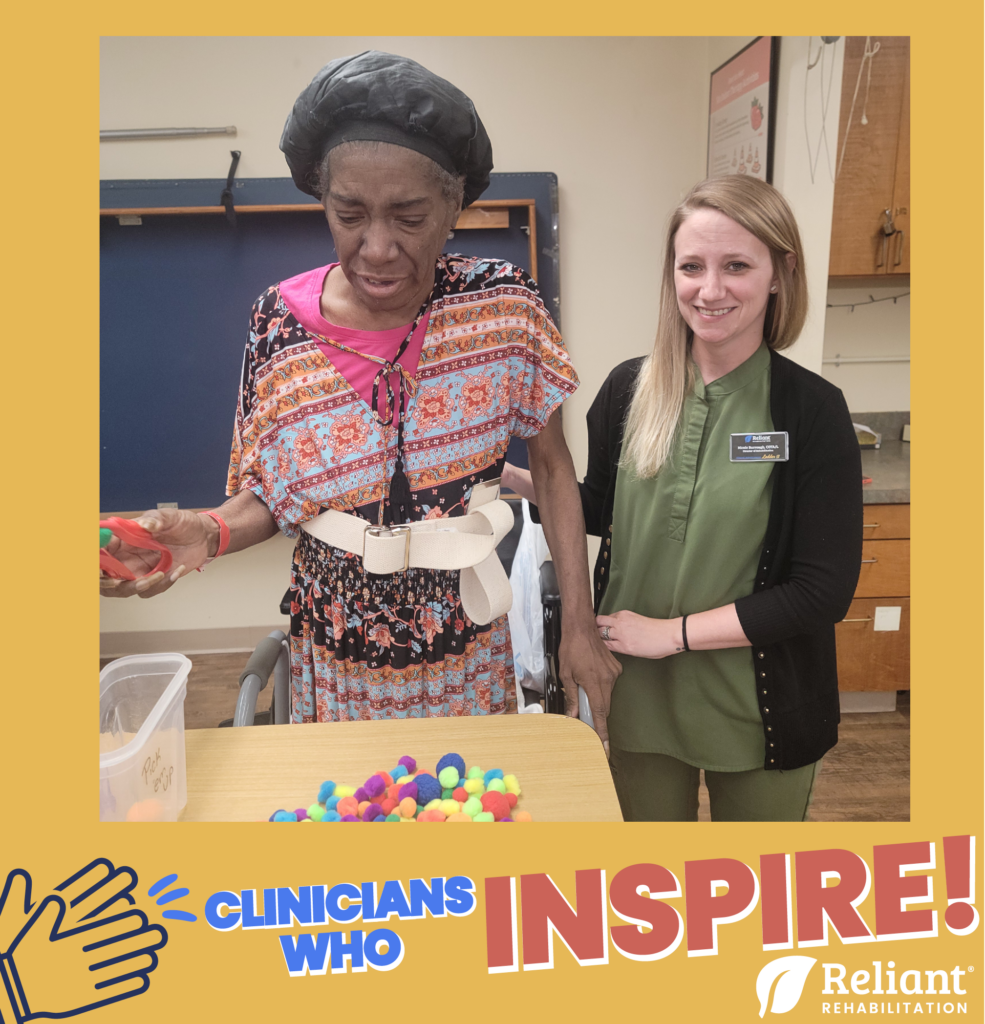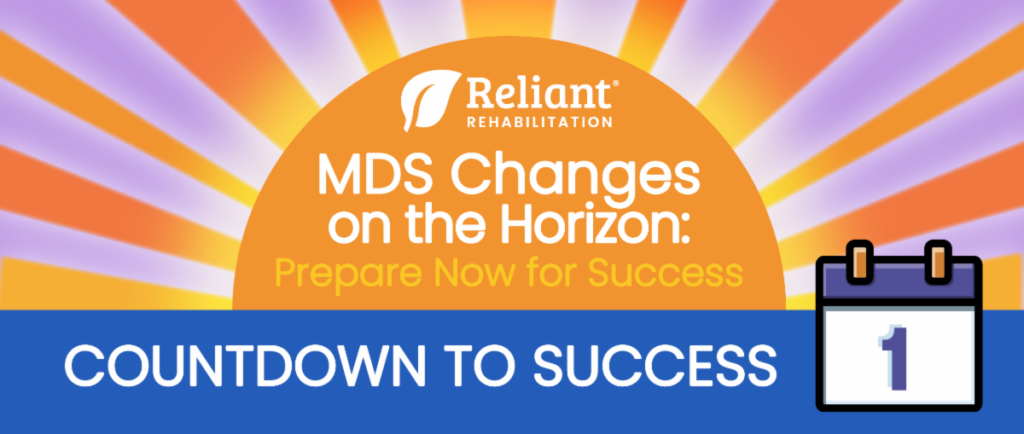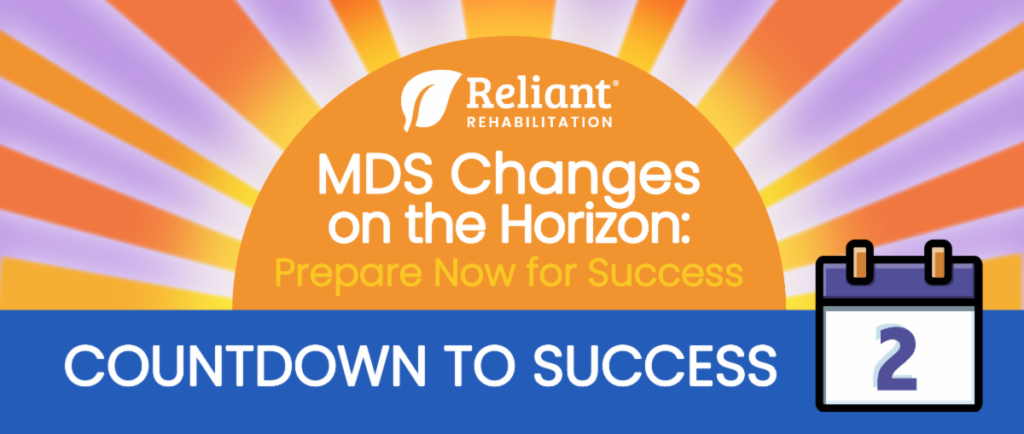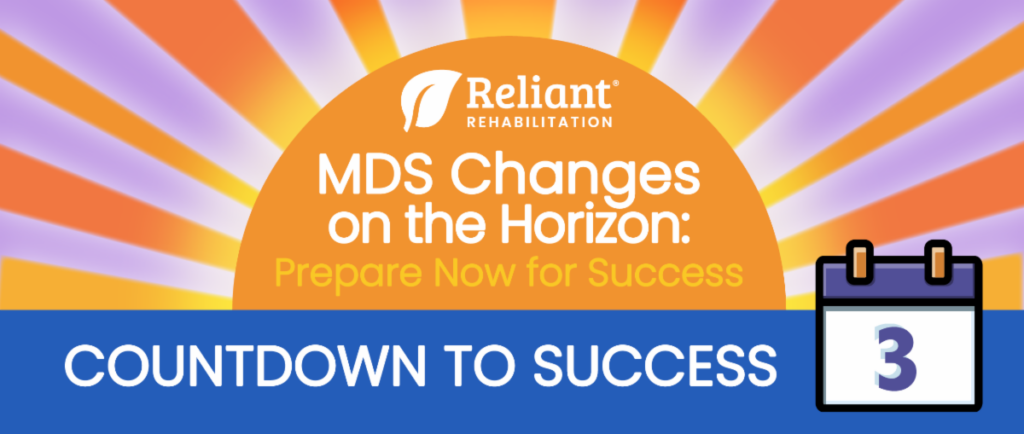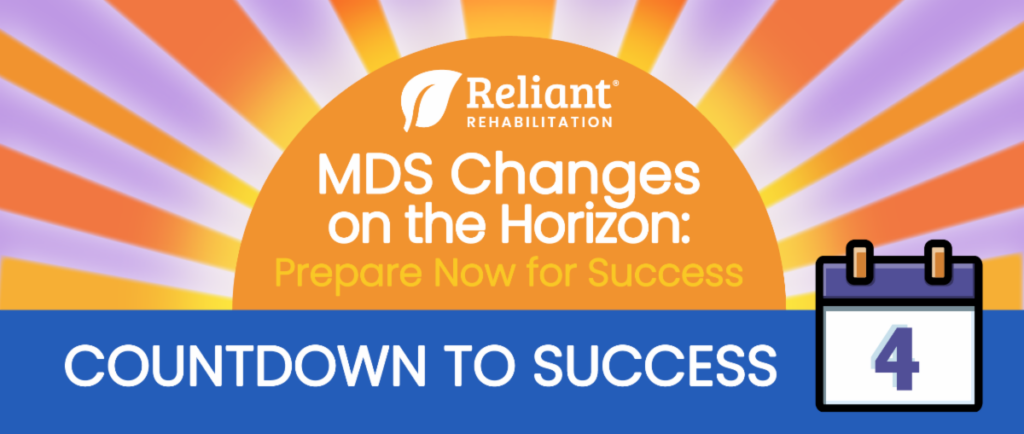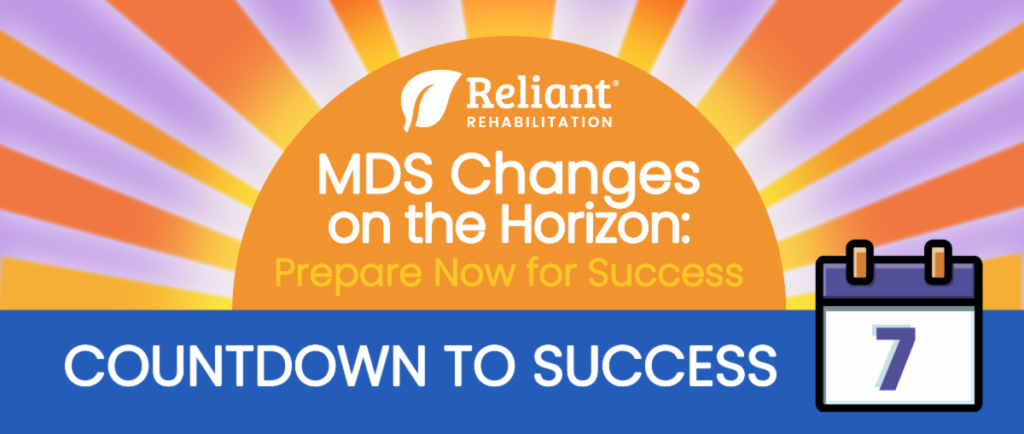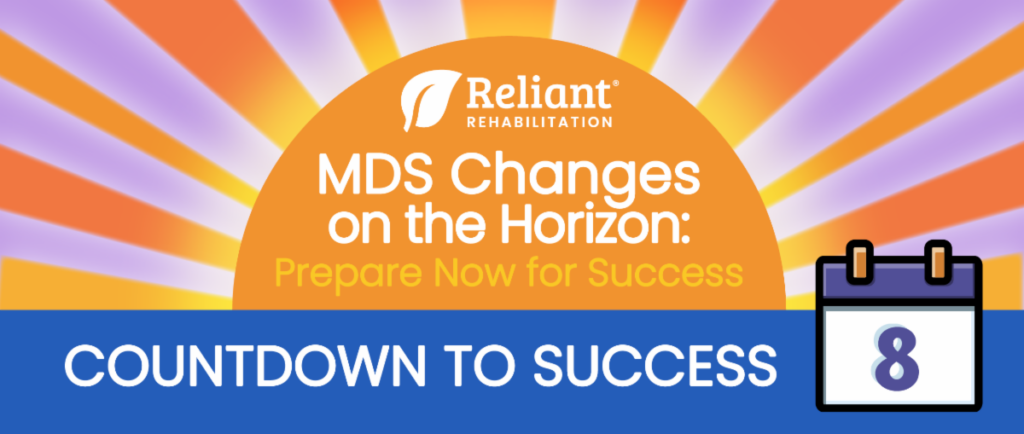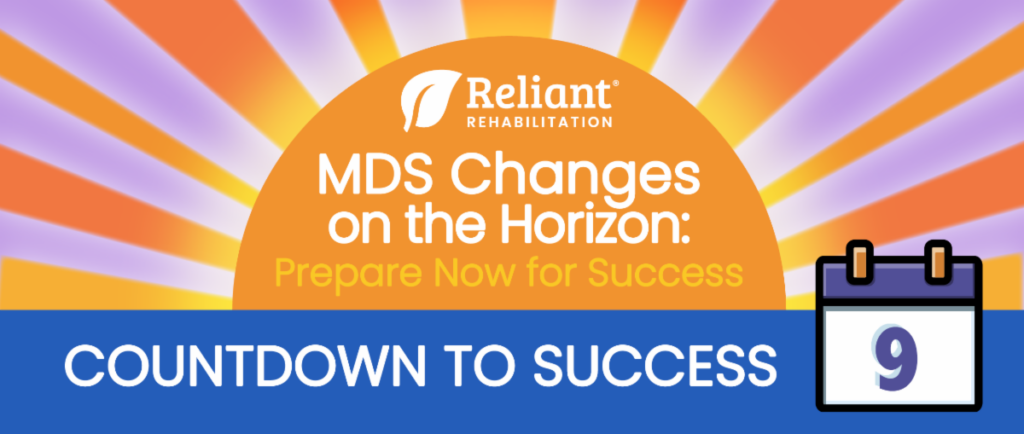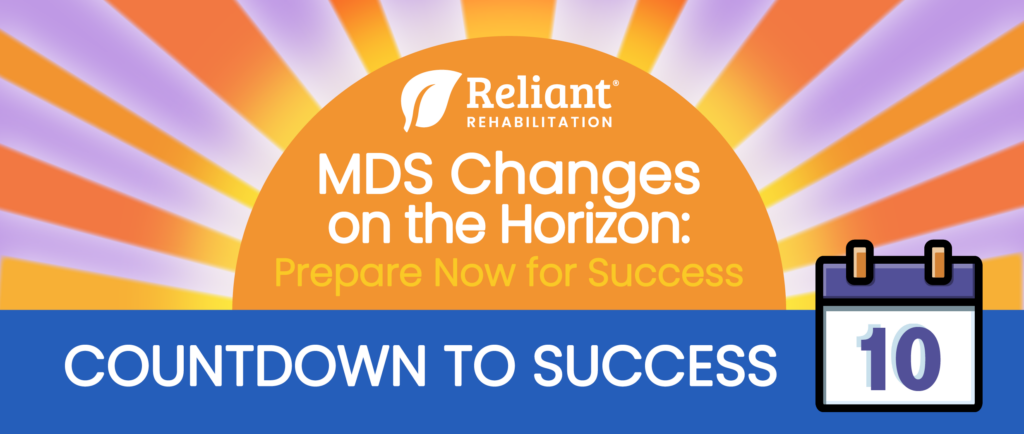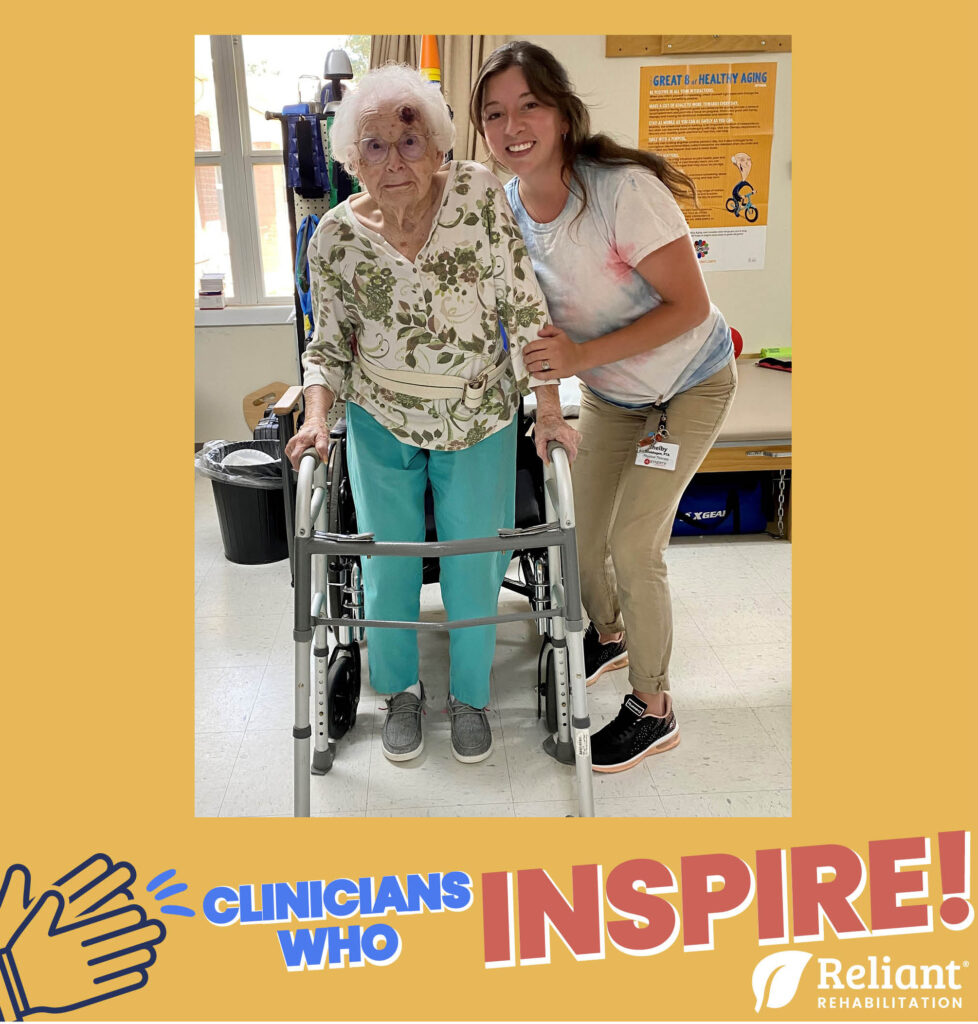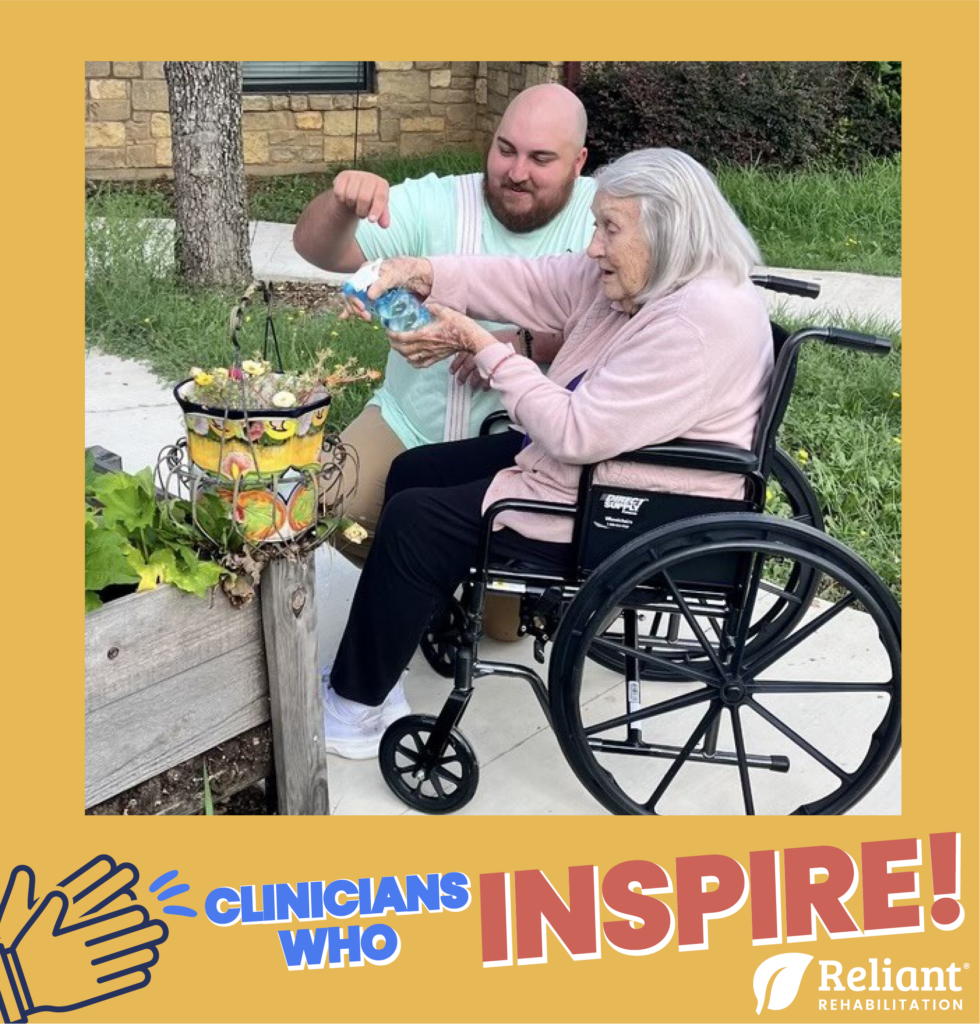
This month’s Clinician Who Inspires is Andrew Gerben, COTA/DOR, and Champion Level I Therapist at The Woodlands. Andrew shared that taking an interdisciplinary, “all hands-on deck”, approach to patient care has been a huge factor in his team’s success. He emphasized that getting along and working well with team members allows the utmost focus to be on the patient. They see great value in co-treatments and multi-disciplinary group activities, which are common practice in their gym.
Andrew discussed unique group ideas and said that his team utilizes Reliant’s monthly activity idea emails and A Year of Wellness themes for inspiration. Some of the groups gain such positive feedback from the residents that they are made into yearly traditions, such as the blooming spring gardening.
Andrew’s “team” mentality goes far beyond his therapy team. He also takes pride in his role of being a facility liaison and bridging communication and education between therapy and nursing. He hosts monthly in-services for all staff to review proper transfer techniques and make sure that everyone feels confident. He enthusiastically shared that everyone knows if there is a question, he will find the answer!
Andrew discussed the importance of continuous learning. His entire team is now part of Reliant’s Clinical Ladder, and each therapist is focusing on a different track. He said that this allows for them to share knowledge and be more well-rounded as a team.
Andrew, you are an inspiration to all of us! We appreciate your dedication to not only your patients but your facility’s success as a whole. Thank you for being a Clinician Who Inspires!

